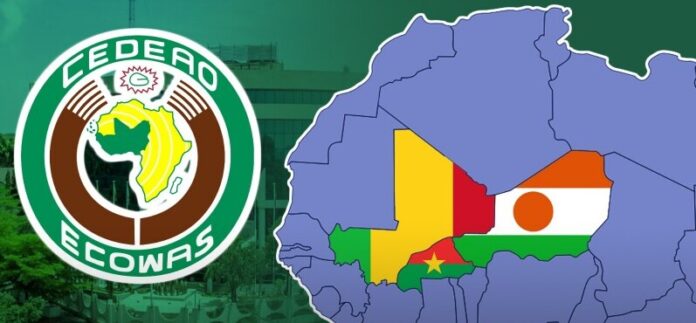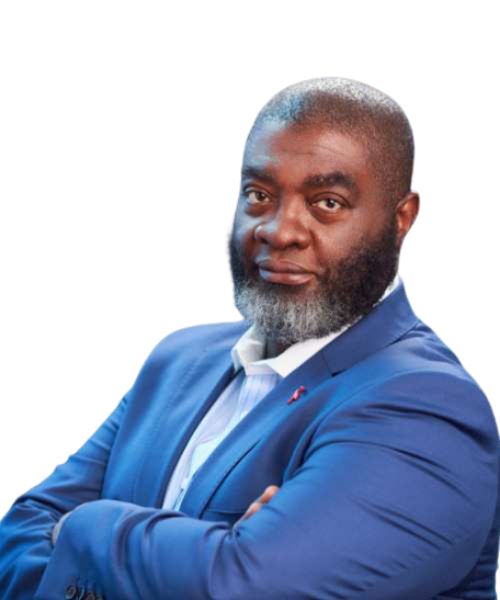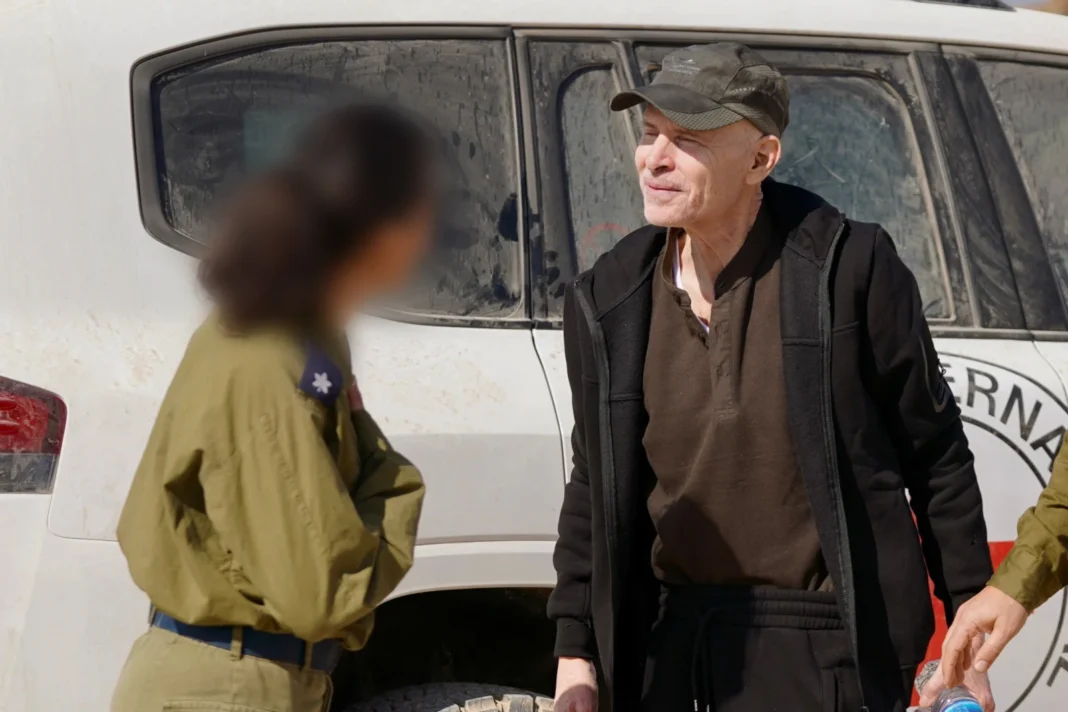In the aftermath of the announcement on 28 January 2024 by Burkina Faso, Mali, and Niger Republic denouncing the Revised Treaty of the Economic Community of West African States (ECOWAS) and leaving the regional bloc “without delay”, reactions spanned the spectrum from hubris to hyperbole. From Nigeria, the regional anchor and chair of the Community, the predominant sentiment was: “the three countries would have more to lose.”
Outside the continent, some described the situation as “West Africa’s ‘Brexit’ moment” or Sahelexit, likening it to Britain’s decision in 2016 to quit the European Union. Reinforcing the comparison, the finalization this past week of the exit of the three countries from ECOWAS coincided with the fifth anniversary of the United Kingdom’s exit from the EU. The temptation to read too much into this coincidence should be resisted.
It is significant that the announcement by the three ECOWAS frontier states in 2024 was made shortly after the arrival in France of Nigeria’s President Bola Tinubu for what was said to be a “private visit”. All three countries have been involved in a plurinational dispute involving both Nigeria and France and connected with military rule and transitions to elected government.
In reality, however, the disputes have been more about historical legacies of French colonial rule, the complex insecurity in the Sahel, and Nigeria’s regional role. In reference to this, the joint statement by the three countries accused ECOWAS of being “under the influence of foreign powers and betraying its founding principles.”
These were not allegations to be treated lightly. There was also significance to the fact that the announcement came on the eve of ECOWAS’ golden jubilee year and represented the latest escalation in what is in fact a debate about how to calibrate inter-state relations in an increasingly complex regional environment.
It did not have to end this way. As a matter of law and notwithstanding the peremptory language deployed, the departure declaration by Burkina Faso, Mali and Niger in 2024 denouncing the ECOWAS Treaty was not immediate. Article 91(1) of the Revised ECOWAS Treaty requires departing countries to “give to the Executive Secretary one year’s notice in writing” and their departure can only take effect at the end of the period.
ECOWAS had every opportunity during this period to exert itself to show it desired a different outcome. In the end, the Community appeared manifestly incapable of sustaining two contradictory ideas. One is the strategic importance of good neighbourliness within ECOWAS as a regional community of sovereign peers; the other is the commitment to government founded on democratic legitimacy.
The fact that ECOWAS finds itself in the current predicament ostensibly over the fate elective government in the region is somewhat perverse acknowledgement of how far it has advanced since its origins.
Of the 15 heads of state and government present at the adoption of the Treaty of the Economic Community of West African States in May 1975, seven were military rulers and another six were succeeded by soldiers. Felix Houphöuet-Boigny of Côte d’Ivoire was the only president as such among the original signatories who was neither a soldier nor directly succeeded by one but his successor was toppled by the military in December 1999. Abdou Diouf, who represented Senegal at the adoption of the treaty was then Prime Minister to President Leopold Senghor, whom he later succeeded as president on 1 April, 1981.
Cape Verde and Senegal are, therefore, the only ECOWAS countries to have been spared the experience of military rule. This fact should ordinarily have equipped the Community and its member states with adequate skills in reacting to military coups. However, it would be a mistake to suppose this denouement is the result of an argument over coups alone or mostly.
ALSO READ: Emmanuel Obioma Ogwuegbu: The Last of a Few Good Men? By Chidi Odinkalu
ECOWAS began life in the middle of the global energy crisis of the 1970s, founded by rulers who declared it as their goal to “foster and accelerate the economic and social development of our States in order to improve the living standards of our peoples.” A combination of misrule and debt overhang miscarried this objective even before the ink was dry on the parchment on which it was written.
In the wake of instability that followed, the community adjusted its mission in 1981 to include mutual defence and security, importing an implicit obligation of regional solidarity. When the Mano River countries, first Liberia and then Sierra Leone, descended into war from 1989, Nigeria, then led by military ruler, Ibrahim Babangida, launched a regional intervention known as ECOWAS Monitoring Group (ECOMOG) in 1990.
A review of the original ECOWAS Treaty followed in 1993, chaired by Nigeria’s former military ruler, Yakubu Gowon, himself the prime mover behind the original ECOWAS vision. The Revised ECOWAS Treaty again enhanced the obligations of mutual solidarity among the countries of the sub-region.
As the anchor country in ECOWAS, Nigeria was naturally expected to bear much of the burden of financing this obligation. But a straitened economy at the end of decades of misrule have frustrated that capability on the part of Nigeria at precisely the time that the countries of the Sahel needed its presence the most in response to Islamist insurgencies.
ALSO READ: Theresa Chikeka: Retired Judge As Chief Judge of Imo State By Professor Chidi Odinkalu
The resulting vacuum has been filled by external actors. The French proved to be their own worst enemies in their attempt to fill this vacuum, providing the soldiers who have seized power in these countries with a common foil. French departure in November 2022 and regional isolation by ECOWAS have proved to be a boon to Russia which has quickly built up assets and relations with the regimes in Burkina Faso, Mali, and Niger.
Notionally, the departure of these three countries will cost ECOWAS 54.35% of its landmass, 20% of its sovereign membership, 16.5% of its population and seven per cent of its GDP. The actual costs are incalculable. First, Mali and Niger have been historic buffers between the violence of the Sahel and the Maghreb on the one hand and the coastal states of the Gulf of Guinea on the other. Their departure could create new security exposures.
Second, the informal economies of West Africa depend significantly on these countries. Trade, migration and pilgrimage routes traverse through them and the impact on the poor and the excluded who rely on these informal routes could either prove to be prohibitive or prove that our inter-state borders are hollow in legitimacy and meaning in the lives of ordinary people.
ALSO READ: In Memory of The ‘Unknown’: The Story of Elechi Igwe 1964-1990 By Chidi Odinkalu
Third, these countries are important for civil aviation in West Africa for overflights. If they were to deny these, ticketing and routing into their southern neighbours could also become prohibitive.
The upshot is that, in a region defined by notoriously porous borders and transnational communities, severing ties could be easier said than done. Even now, there is still reason not to give up hope: Burkina Faso, Mali and Niger retain their membership of the CFA Franc Zone in the UEMOA, five of whose members remain in the ECOWAS.
ECOWAS has put a brave face on its diminution, claiming that its institutional doors remain open to these countries but their Alliance of Sahel States (AES) is up and running. The feeling remains inescapable that this outcome was not foregone and that it has been enabled by high-level ineptitude among the leadership of ECOWAS.
Ghana’s new president, John Mahama, has in a practical manner made it a priority to advance rapprochement with the AES countries, appointing a personal envoy to lead this process. The Community should fully support him.
It is impossible not to contemplate what might have been. Over the past year while the imminence of these losses escalated, Nigeria’s President and Chairperson of ECOWAS, Bola Tinubu, has been to France on numerous occasions. Consider what might have been if he found time to engage and personally visit these West African neighbours? Surely, that was a mission fit for a new presidential jet.
A lawyer & a teacher, Odinkalu can be reached at chidi.odinkalu@tufts.edu




